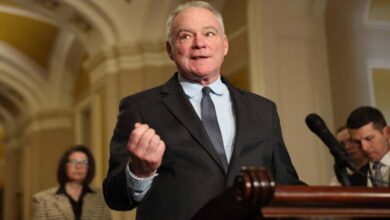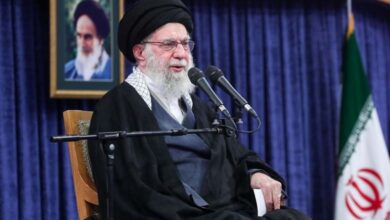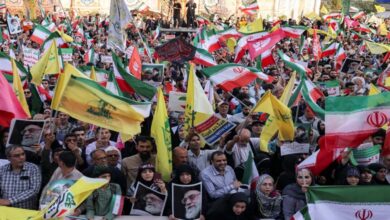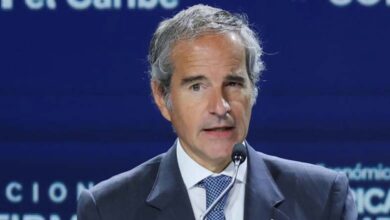Macron’s appointment of figures opposed to Morocco in his government warns of renewed tensions
The new Foreign Minister, Stéphane Séjourné, is considered the main driver behind the campaign that targeted Rabat within the European Parliament, while the new Prime Minister, Atal, is implicated in the visa crisis for Moroccans
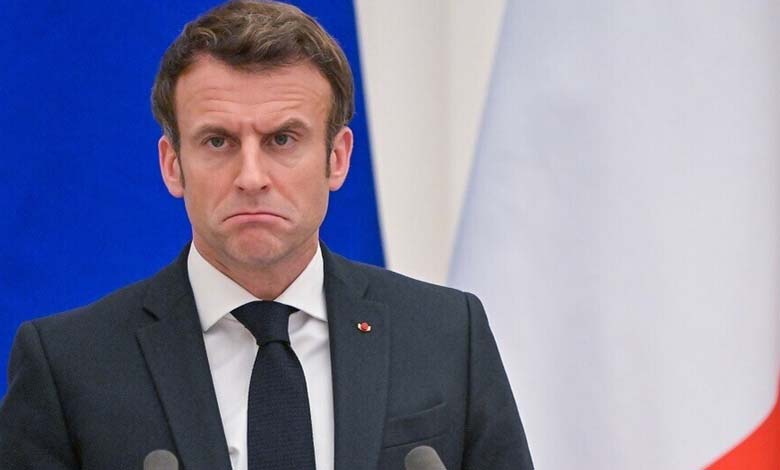
President Emmanuel Macron‘s Thursday appointment of his party’s Secretary-General, Stéphane Séjourné, as the Foreign Minister, replacing Catherine Colonna, raises questions about the nature of these choices and their impact on French-Moroccan relations, which were navigating a path to resolve a silent crisis between the two countries.
Séjourné, the head of the “Renaissance” group and a Member of the European Parliament, led a campaign in the European legislative body against Morocco, culminating in the issuance of two non-binding resolutions, one of which falsely and misleadingly addressed allegations of serious violations of press freedom in the Kingdom. These claims were based on accusations promoted by non-governmental organizations, including Human Rights Watch, which involved itself in the case of the journalist Omar Radi, convicted on charges of espionage and sexual assault, framing his case as a violation of freedom of expression.
The new French Foreign Minister, close to Macron and part of the supporting majority, previously worked as his advisor from the end of 2020 to October/November 2021. He was also responsible for fundraising for Macron‘s presidential campaign in 2017.
The appointment of Stéphane Séjourné as the head of French diplomacy may create ruptures in France’s relations with several countries, including Morocco, potentially bringing relations with the Kingdom back to a state of tension. This comes after signs of a breakthrough in the silent crisis between Paris and Rabat regarding the visa crisis and official stances hostile to the interests of the Kingdom.
Séjourné, the new “Macronist” minister, was also the main driver of the campaign targeting Rabat within the European Parliament, regarding allegations of espionage through the Israeli “Pegasus” program. This campaign was one of the causes of the long-standing diplomatic void in the Moroccan embassy in Paris, symbolizing an unprecedented crisis between the two countries.
Relations between the two parties tensed due to Paris’s decision to reduce the number of visas granted to Moroccans and its stance on the Moroccan Sahara issue. French President’s reliance on Algeria, the European Parliament’s recommendation regarding press freedom in Morocco, and the issue of spying using the Israeli “Pegasus” program all contributed to the strained relations, which Rabat sees as involving French media and some circles in its emergence and promotion, requiring French authorities’ intervention.
French positions led to tension, notably the rejection by Moroccan authorities of French aid for the victims of the earthquake on September 8 last year, sparking outrage in the French media, which launched campaigns against Morocco and its institutions. The magnitude of the “silent” crisis that has cast its shadow on Rabat-Paris relations for more than two years is evident in the freezing of visits by officials from both countries, the absence of any contact between the Moroccan monarch and the French president, and a diplomatic vacuum.
After French attempts to bridge the gap and show goodwill towards Rabat, relations between the two countries showed signs of improvement. King Mohammed VI appointed Samira Sitail, a former news director at the Moroccan second channel, as Ambassador to the French Republic in October last year. This was months after the position became vacant following the end of the term of Ambassador Mohammed Benchaaboun on January 17 last year, the same day the European Parliament voted on a resolution regarding press freedom, deemed hostile to Morocco, initiated and supported by Macron‘s party deputies.
In November 2023, during an interview on “Radio 2M,” the French Ambassador in Rabat, Christophe Lecourtier, announced that his country had lifted all restrictions previously imposed on visa issuance for Moroccan citizens, closing this file definitively. However, he expressed regret for this decision, stating that it was a “loss” for his country, acknowledged by President Emmanuel Macron, and it greatly damaged its image. He clarified that a close relationship, such as that between Paris and Rabat, cannot be managed solely through statistics.
These developments raise questions about the significance of these appointments after French efforts to ease and end the crisis with Morocco. The new names (starting with the controversial Prime Minister Gabriel Attal to his civil contract-connected Foreign Minister) seem to go against the path of turning the page on the dispute. Why does Macron choose figures hostile to Morocco while seeking to end tension?
The issue of appointments involves internal and external aspects. While the external course related to relations with Morocco remains vague and incomprehensible, the internal side can explain this vision. Observers say Macron is trying to fortify himself internally, given that his government lacks absolute majority.
The perspectives circulated, especially among the opposition, emphasize that this step may not necessarily lead to any major political shift. Still, it indicates Macron‘s desire to overcome last year’s unpopular pension and immigration reforms and improve the chances of his centrist party in the European Union elections in June.
They believe that France’s interest today requires changing Séjourné’s previous anti-Morocco positions in light of the current relations between the two countries. Therefore, a new approach towards Morocco is needed to steer foreign relations towards rapprochement with Rabat, after setbacks and a decline in France’s influence in the Sahel region, as Morocco rises as a significant force and a reliable partner actively penetrating African depth with quiet political and economic diplomacy based on strategic partnerships serving African and Moroccan interests.
The new Prime Minister may have learned from the past lesson and his country’s intensive efforts to improve relations with Morocco, given its importance and strategic position in the region. Especially as it is considered France’s first trading partner in Africa and secures an entry point to sub-Saharan Africa, where it has been actively exercising “soft power” economically since 2010.
Analysts suggest that the new political figures in the government must work to advance bilateral relations between their country and Morocco, considering that France generally has strained relations with several of its former colonies in Africa and is in dire need of a stable and strong relationship with Morocco.



